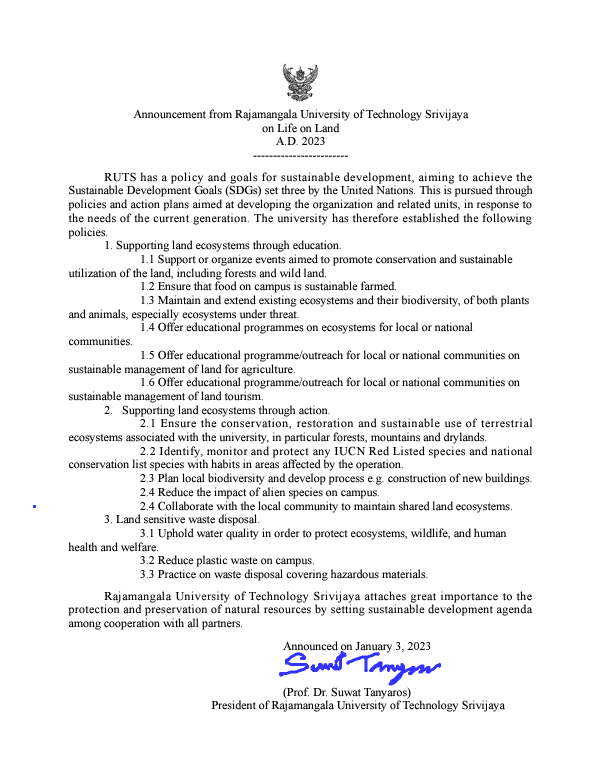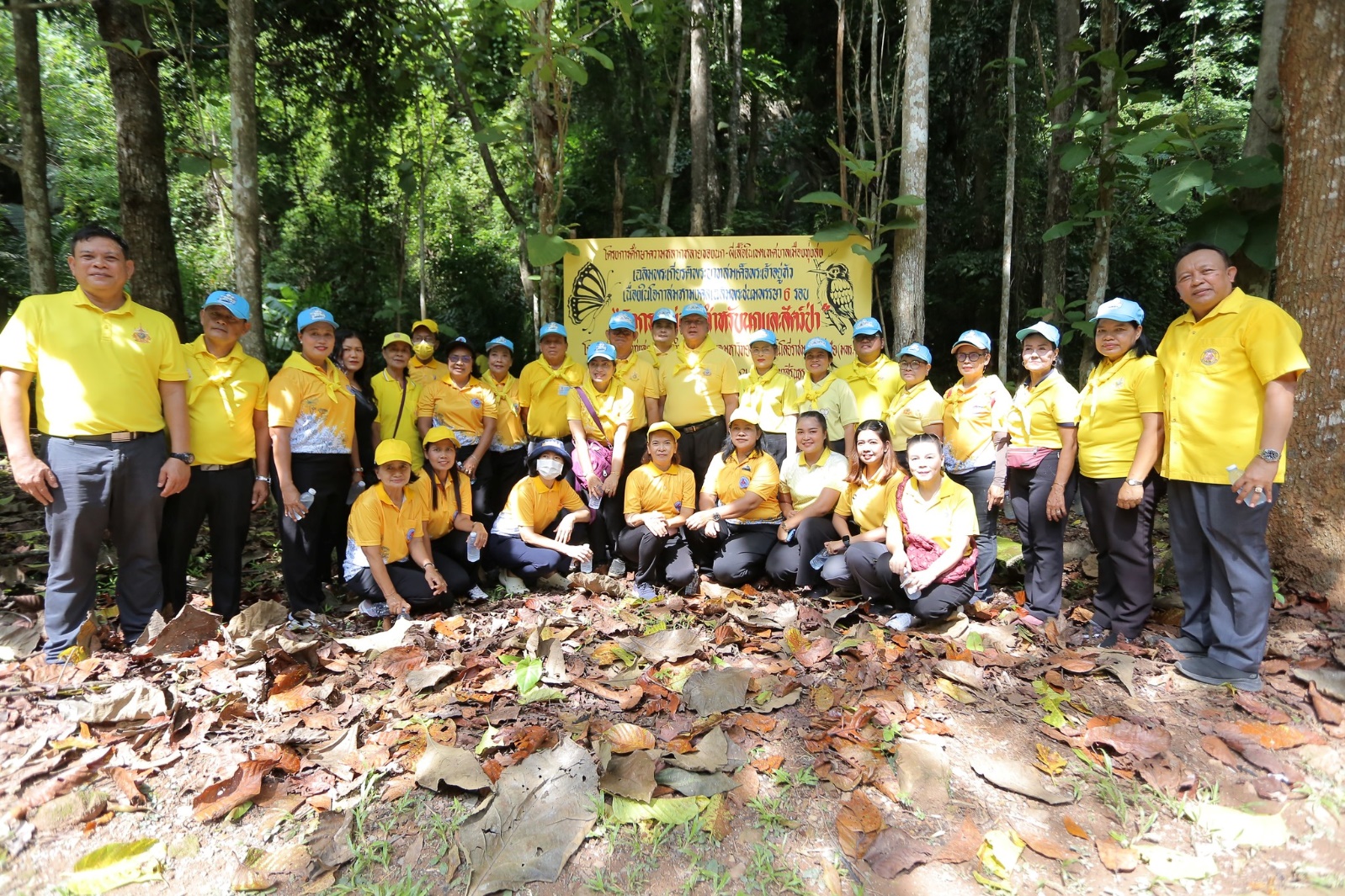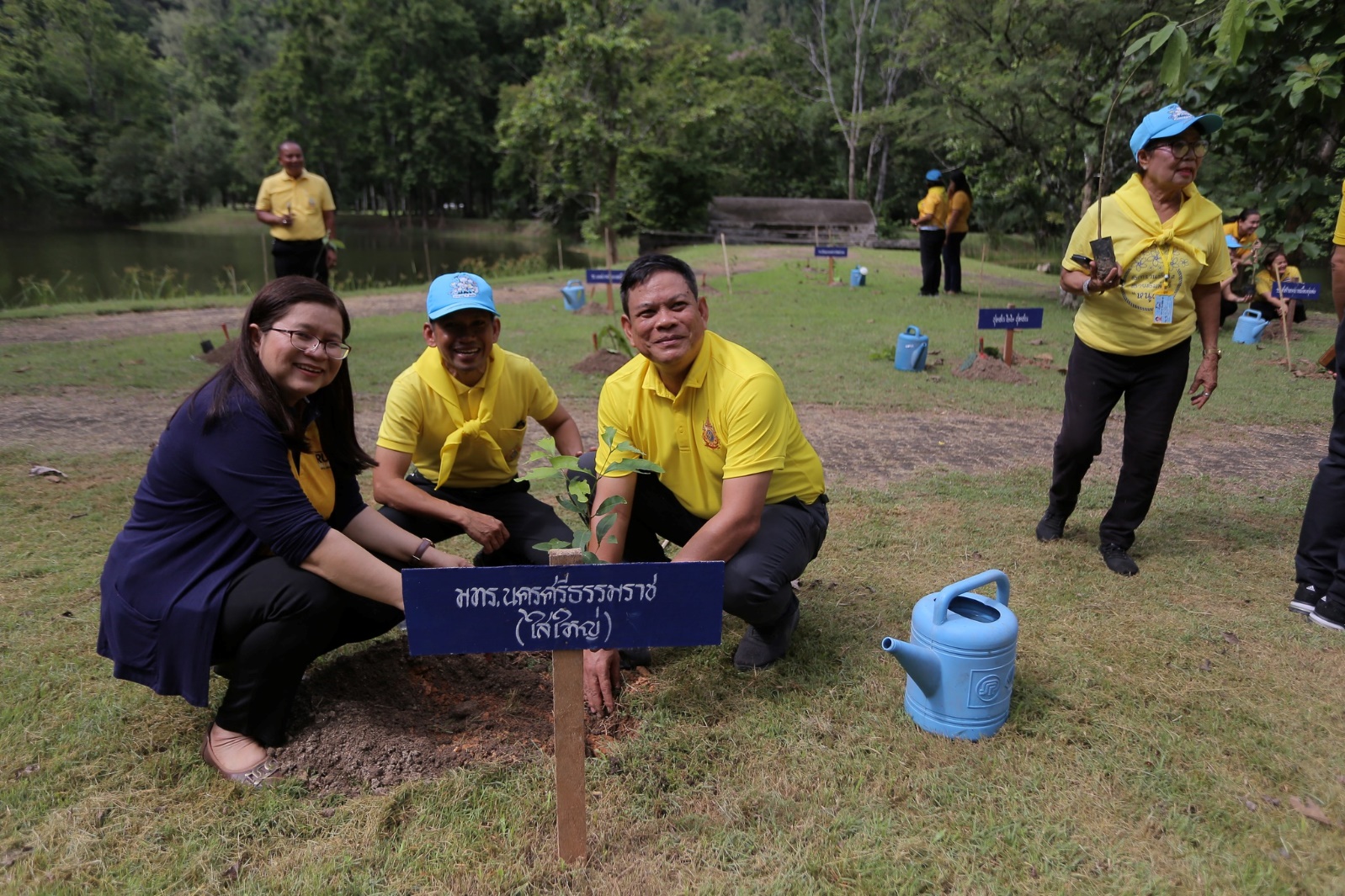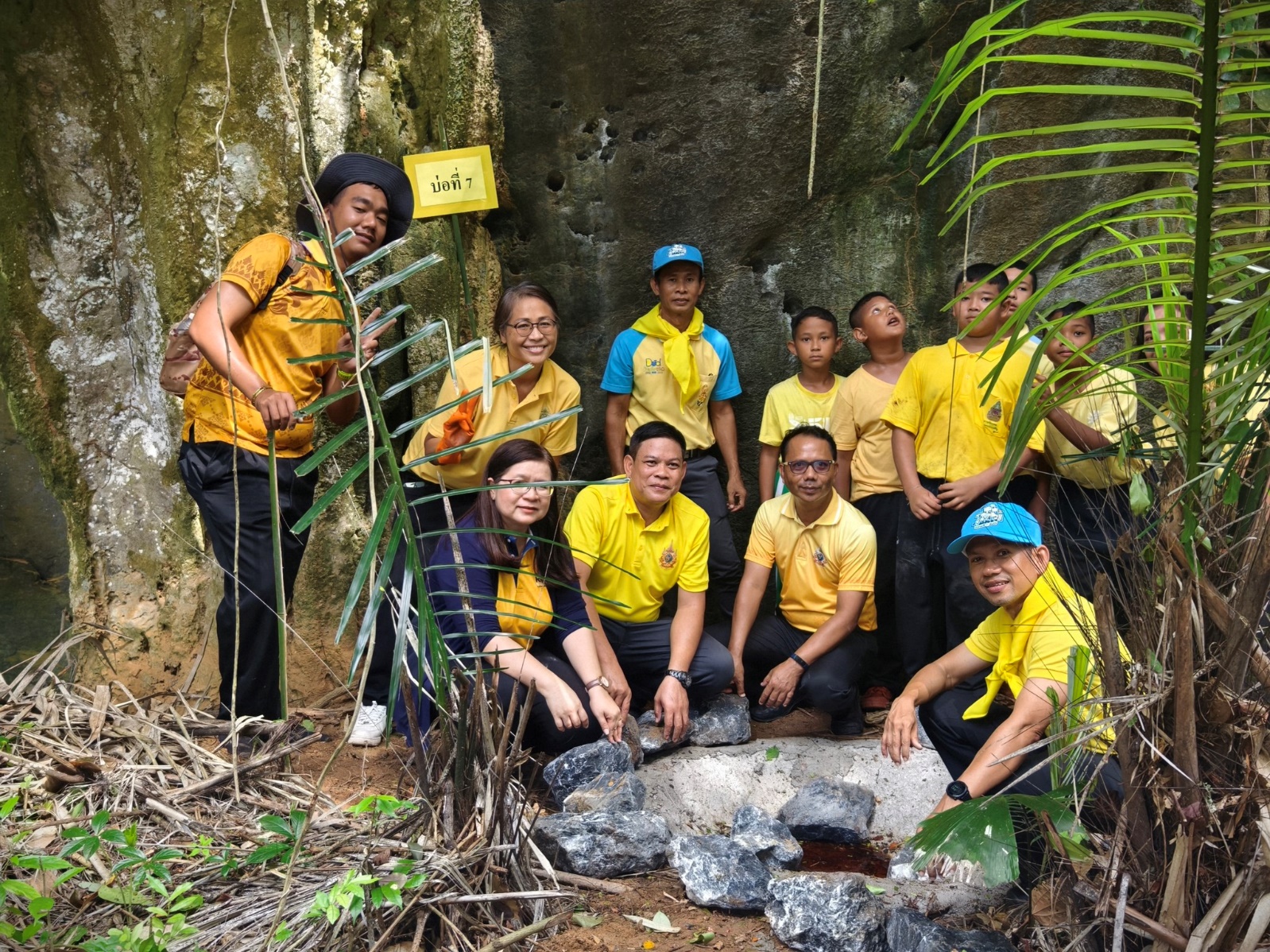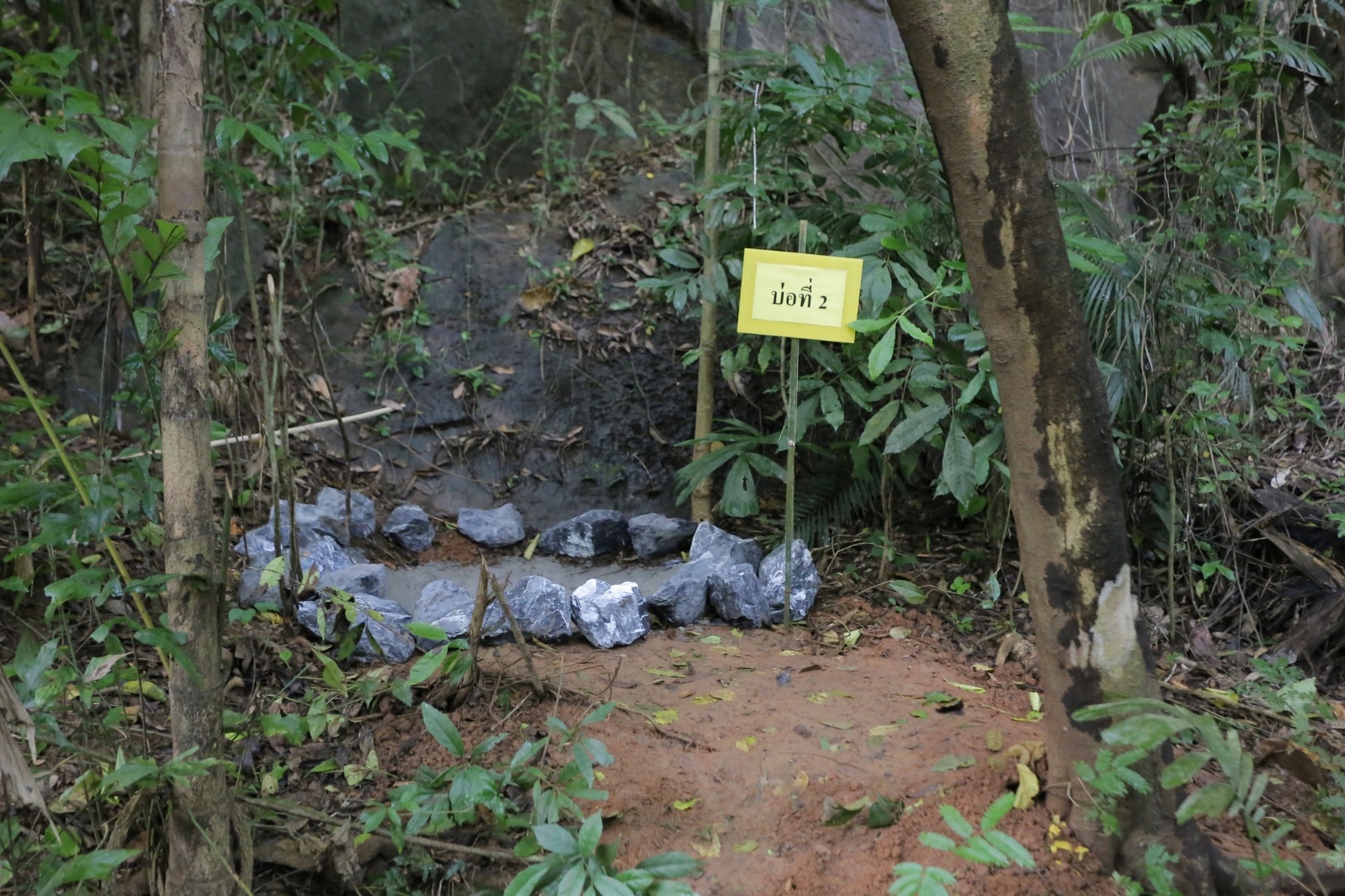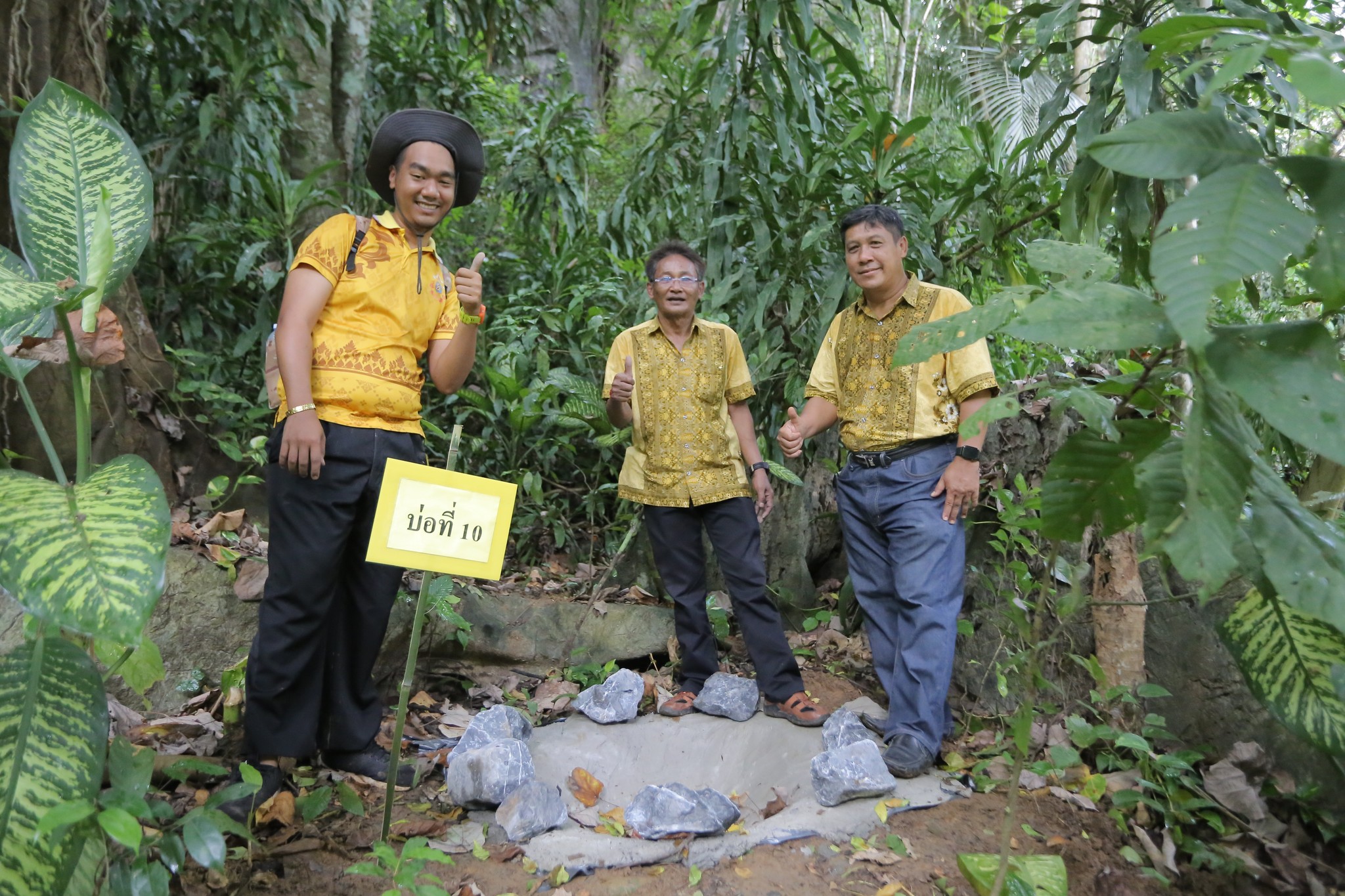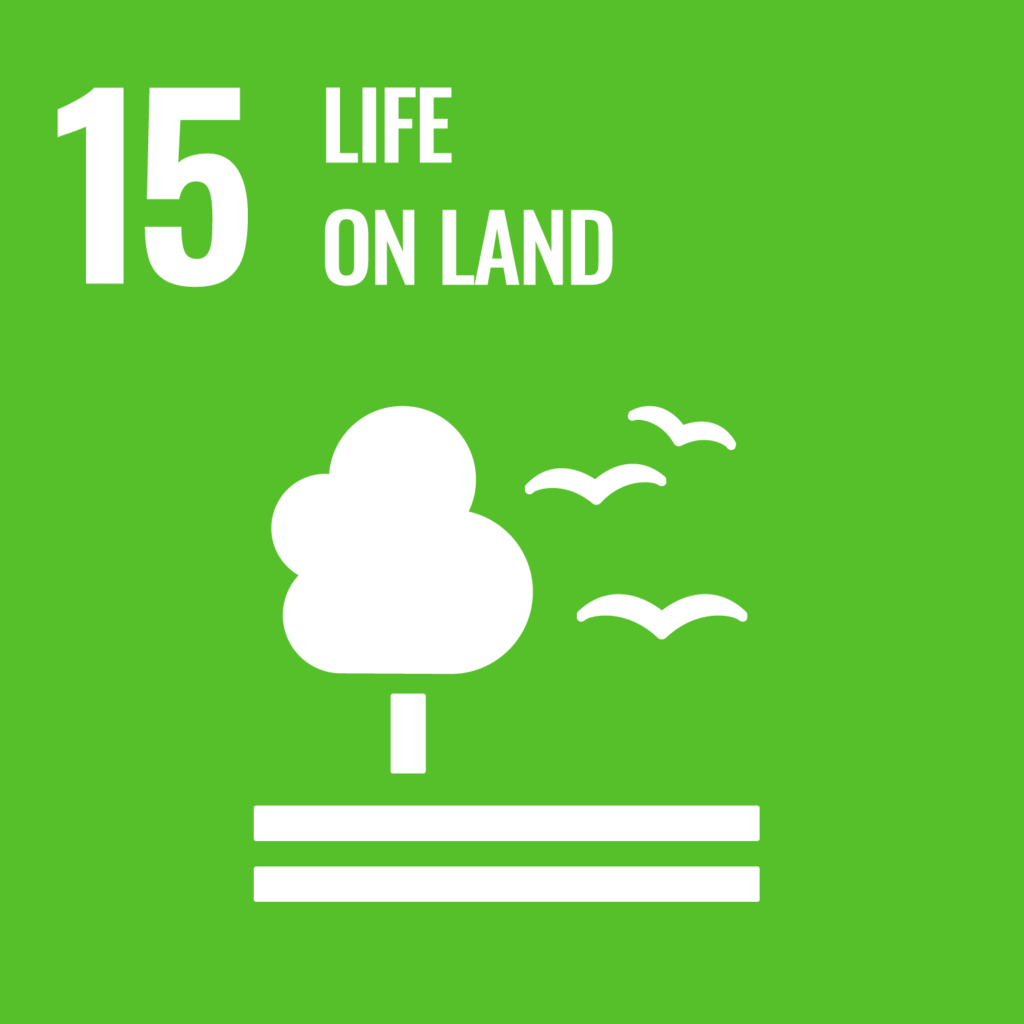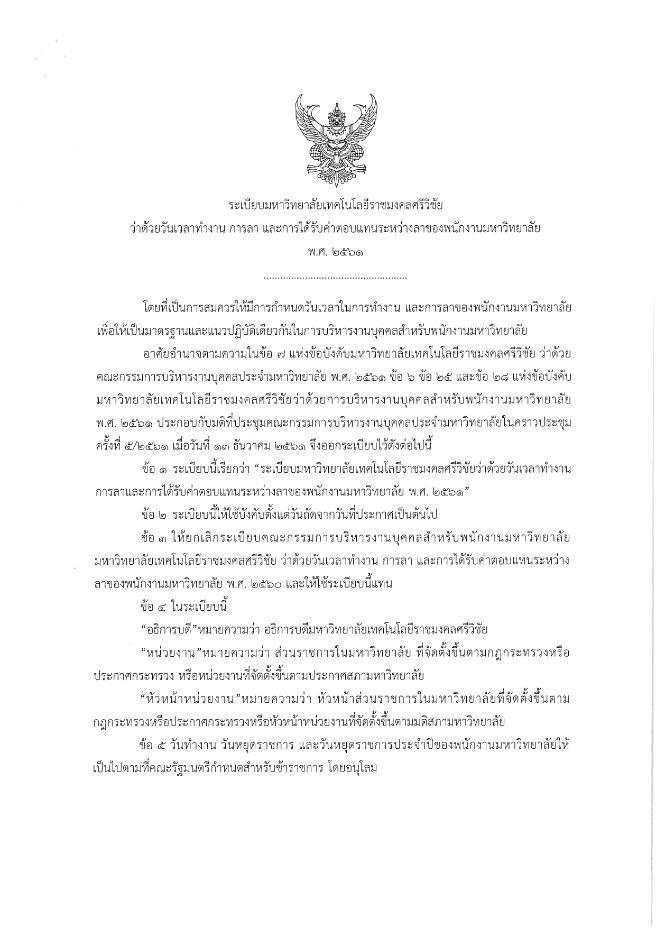Reporters: Asst.Prof.Dr. Prapot Maliwan
Assoc.Prof.Dr. Pornsil Seephueak
Asst.Prof.Dr. Nion Chirapongsathonkul
Asst.Prof.Dr. Worawitoo Meesook
Evidence Date: during 2024 Jan-Dec
Related Indicators: 15.2.3
Details:
On 15 July 2024, under the policy to improve biodiversity and ecosystem health, Dr. Prasert Nontakarn from the Faculty of Science and Technology, Rajamangala University of Technology Srivijaya (RUTS), implemented a project to support avian diversity in Thung Song Municipality. The initiative translates RUTS’s environmental policy into practical conservation action within the community. Recognizing that birds serve as important indicators of ecosystem stability, the project aimed to enhance local habitats to sustain bird populations throughout the year. Dr. Prasert and his team designed a plan to provide reliable food and water sources, especially critical during the dry season when natural resources become scarce. Artificial ponds and feeding stations were strategically established across selected urban green spaces. These small, managed habitats help birds survive harsh summer conditions while attracting migratory and native species alike. As a result, the project not only increased bird sightings but also improved the ecological balance in nearby urban ecosystems. This practical implementation demonstrates how academic research can directly address biodiversity loss in city environments.
Beyond ecological restoration, the project also emphasized community participation and environmental education. Local residents, students, and municipal staff collaborated in constructing and maintaining the bird ponds. Training sessions introduced participants to bird identification, data collection, and the importance of maintaining ecological diversity. This hands-on experience deepened people’s appreciation for the ecological roles birds play, including pollination, pest control, and seed dispersal. Regular bird monitoring provided valuable data for evaluating the success of conservation strategies. The activity fostered a strong sense of stewardship among participants, bridging the gap between scientific research and local action. Through this inclusive approach, RUTS strengthened partnerships with Thung Song Municipality and promoted awareness of urban biodiversity management. These efforts demonstrate that biodiversity conservation can thrive when science, education, and community values align.
The Avian Diversity Enhancement Project reflects RUTS’s broader vision of turning policy into meaningful environmental practice. It supports the national goal of building resilient and sustainable ecosystems through science-based management and community collaboration. The project’s outcomes highlight how small-scale interventions can generate large ecological impacts when guided by clear policy direction. The restored bird habitats now serve as living classrooms for students and local schools, encouraging continuous learning and observation. Moreover, the project contributes to climate adaptation by promoting green spaces that moderate urban temperatures and support water cycles. The initiative serves as a model for other municipalities seeking to integrate biodiversity goals into urban planning. RUTS continues to encourage academic leaders to design research projects that respond to local environmental needs while aligning with global conservation priorities. Ultimately, the project exemplifies how research-driven actions can transform environmental policy into tangible ecological progress. Through ongoing collaboration, RUTS reaffirms its role as a regional leader in biodiversity conservation and sustainable urban ecosystem development.
